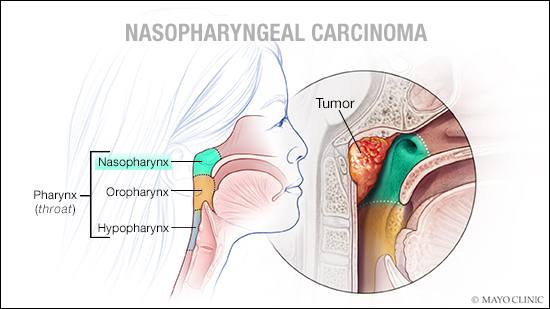-
Living With Cancer: Nasopharyngeal carcinoma

Nasopharyngeal carcinoma
Nasopharyngeal carcinoma is cancer that occurs in the nasopharynx, which is located behind your nose and above the back of your throat. This type of cancer is rare in the U.S. It occurs much more frequently in other parts of the world, especially Southeast Asia. It can be difficult to detect early because the nasopharynx isn't easy to examine and symptoms of nasopharyngeal carcinoma mimic those of other more common conditions. Treatment usually involves radiation therapy, chemotherapy or a combination of the two. Learn more about the symptoms and risk factors for nasopharyngeal carcinoma. You can also connect here with others who are discussing head and neck cancer.
Video: 'Genetic Testing for Breast Cancer'
One of 8 women will be diagnosed with breast cancer in her lifetime, and a small subset have inherited an abnormal copy of a gene that runs in families and can greatly increase their risk of certain cancers. One question many women and their families face is whether to be tested for this genetic risk. The answer is always a very personal one. Hear from Mary Holm, who lost her sister to breast cancer and as a result had genetic testing herself.
Treating throat cancer
Throat cancer refers to cancerous tumors that develop in your throat (pharynx), voice box (larynx) or tonsils. Signs and symptoms of throat cancer may include a cough, difficulty swallowing, ear pain and weight loss. Your treatment options will depend on several factors, including the location and stage of your throat cancer; the type of cells involved; and your overall health and treatment preferences. Learn about the treatment options for throat cancer and which might be right for you.







